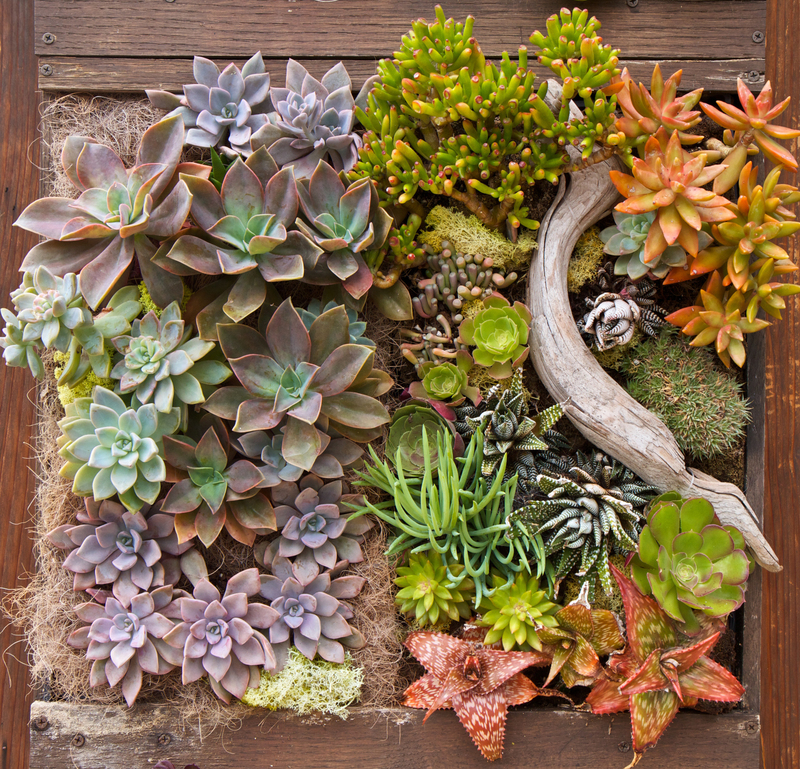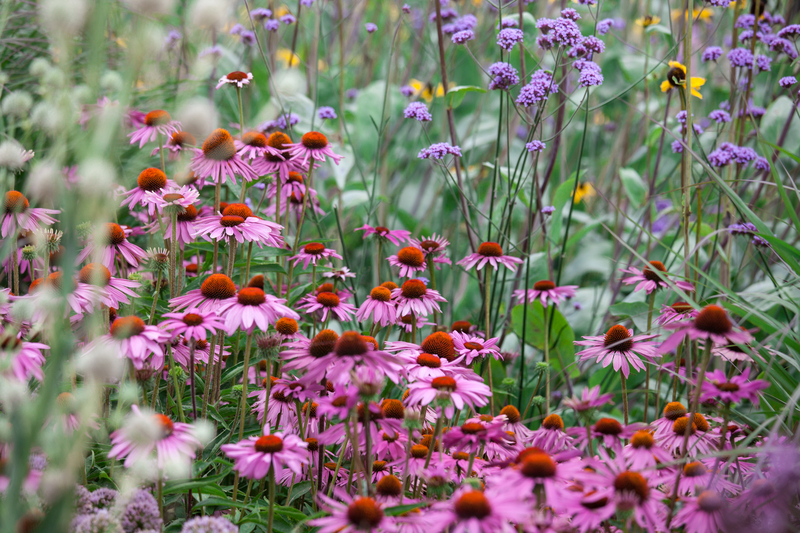Elevate Your Gardening Game with These 3 Weed Control Tips
Posted on 09/06/2025
Elevate Your Gardening Game with These 3 Weed Control Tips
Gardening is a source of joy and satisfaction for millions around the world, providing beauty, tranquility, and even delicious homegrown food. However, every gardener--novice or expert--faces one persistent challenge: weeds. Unwanted, aggressive, and often difficult to eradicate, weeds can quickly turn your beautiful garden into a battleground. The good news? By implementing effective weed control strategies, you can reclaim your garden's beauty and productivity. This comprehensive guide focuses on three powerful weed control tips that will elevate your gardening game to new heights.
Why is Weed Control Essential for Successful Gardening?
Weeds are not just unsightly. They compete with your precious plants for nutrients, water, sunlight, and space. Some weeds even harbor pests and diseases that can undermine the health of your entire garden. Ignoring these unwelcome guests can result in:
- Stunted growth and poor crop yield
- Soil degradation and erosion
- Increased need for chemical intervention
- More time and effort spent managing out-of-control growth
Mastering weed prevention and management is a game changer, leading to healthier, more vibrant plants, less maintenance, and a more enjoyable gardening experience overall.

Top 3 Weed Control Tips to Transform Your Garden
Ready to create a garden that thrives, weed-free? Here are the three most effective, practical weed management tips you need to know:
1. Mulching: Nature's Protective Blanket
Mulch is one of the most efficient and eco-friendly tools at your disposal for weed suppression. By covering the soil, mulch deprives weeds of the light they need to germinate while helping your desired plants retain moisture, regulate temperature, and enrich the soil as it decomposes.
Benefits of Using Mulch for Weed Control:
- Prevents sunlight from reaching weed seeds, minimizing germination
- Reduces soil temperature fluctuations
- Helps retain moisture, reducing water evaporation and supporting plant growth
- Improves soil health as organic mulches break down
- Makes it more difficult for weeds to establish a foothold
Types of Mulches for Effective Weed Control:
- Organic Mulches - Grass clippings, straw, wood chips, shredded bark, leaves
- Inorganic Mulches - Landscape fabric, plastic sheeting, crushed stone or gravel
Tip: Apply mulch in a layer 2-4 inches thick around your plants and over bare soil. Avoid piling mulch against stems or tree trunks, as this can cause rot. Opt for organic mulch for flower and vegetable gardens to boost soil fertility over time.
2. Smart Planting and Garden Design
Strategic garden design is a powerful, long-term solution for weed prevention. By maximizing space and planting densely, you minimize the opportunity for weeds to establish. Here's how to let your garden do the hard work for you:
Planting Techniques That Crowd Out Weeds:
- Close Plant Spacing: Fill garden beds with the right number of plants for your area, and as plants mature, their leaves will shade the ground--making it harder for sunlight to reach weed seeds.
- Use Ground Covers: Low-growing, spreading plants like thyme, creeping phlox, or sweet woodruff create natural, living carpets that choke out unwanted growth.
- Companion Planting: Pairing certain vegetables, herbs, or flowers together not only deters weeds but can also maximize yield and pest resistance. For example, planting lettuce between tomato plants utilizes space efficiently and shades the soil, reducing weeds.
- Prefer native species: They're often better adapted to local soil and climate, out-competing many invasive weed types.
Garden beds with fewer gaps and shaded soil will see fewer weed outbreaks. Additionally, rotation and varied planting--changing what and where you grow each season--interrupts the life cycle of persistent weeds, giving you a fresh start annually.
Pro Garden Design Strategies:
- Raised Beds: Elevate your garden soil and use defined borders to make weeding easier and prevent weed infiltration from surrounding lawns.
- Defined Pathways: Use mulch, gravel, or pavers to keep walking areas weed-free and reduce accidental weed introduction into planting beds.
- Layering: Plant tall, medium, and ground-hugging species together, reducing open soil where weeds could take root.
3. Hand Weeding and Cultivation--The Right Way
Manual weed removal remains a timeless and dependable strategy, especially for small gardens, challenging invasive species, or for those who prefer organic gardening. However, the method matters--using the right timing and techniques can make all the difference:
Best Practices for Effective Hand Weeding
- Weed When the Soil is Moist - Pulling weeds after light rain or watering means roots come out more easily and completely.
- Pull from the Base: Grasp weeds at their base and pull steadily to minimize breakage and maximize root removal.
- Use Proper Tools: A hoe, weeding fork, or narrow trowel can help tackle tough, deep-rooted invaders.
- Never let weeds seed! Remove weeds before they flower and drop seeds to prevent future outbreaks.
- Regular, quick walk-throughs (even just 5-10 minutes every few days) keep the task manageable and stop weeds before they grow large.
Surface Cultivation Tips:
- Shallow cultivation--stirring just the top inch or two of soil--cuts weed seedlings without disturbing deeper seeds that haven't yet emerged.
- Avoid deep turning of soil during the growing season, as this can bring new weed seeds to the surface.
Combining manual weeding with mulching and smart planting results in a multi-layered defense that dramatically cuts down on effort over time. Remember, consistency is key--the more regularly you address weeds, the easier and quicker it becomes each season.
Bonus Tips: Advanced Weed Management Solutions
If your garden faces particularly aggressive weeds, take your prevention further with these expert-approved solutions:
- Boiling Water or Vinegar: For stubborn weeds growing through walkways or driveways, pouring boiling water or horticultural-strength vinegar can be an effective, chemical-free spot treatment--just be careful not to splash desirable plants.
- Corn Gluten Meal: An organic pre-emergent treatment, it inhibits root formation in certain grassy weed seedlings. Apply in early spring for best results.
- Solarization: Cover sections of bare soil with clear plastic for 4-6 weeks in summer. This traps heat, "cooking" weed seeds and pathogens in the top layer of soil.
- Install barriers between lawns and beds to stop creeping weeds like Bermuda grass from invading flower or vegetable areas.
The Environmental Impact of Strategic Weed Management
One of the great benefits of these weed control techniques is their environmentally friendly nature. By reducing reliance on chemical herbicides and focusing on prevention, physical cultivation, and ecologically-sound methods, you:
- Protect pollinators and beneficial insects
- Improve soil structure and fertility over time
- Lower your garden's carbon footprint
- Preserve local waterways by minimizing chemical runoff
Adopting these approaches supports a balanced garden ecosystem, where healthy plants and natural predators help keep weeds in check.
When to Use Herbicides--If Ever?
While organic and manual methods are preferable, there are situations where herbicides may be required--such as tackling invasive perennials or large-scale infestations before establishing a new garden. If you choose to use them:
- Select targeted, low-impact herbicides and follow all labeling instructions carefully
- Spot-apply only on affected areas, using a shield or brush to avoid impacting non-target plants
- Avoid application before rain, which can wash chemicals into unintended areas
Always weigh the pros and cons--for most gardeners, a commitment to mulching, dense planting, and regular hand-weeding will eliminate the need for chemical intervention.

The Power of Consistency: Make Weed Control a Habit
Ultimately, the secret to weed-free gardening isn't a single magic bullet--it's consistency. Integrate mulching, dense planting, and diligent hand-weeding into your routine for enduring, impressive results.
Summary: Take Your Weed Management to the Next Level
By focusing on these three core strategies--mulching, smart planting, and regular hand-weeding--you'll not only keep weeds at bay, but also build a healthier, more productive garden that requires less effort each year. Remember, vigilance early in the season sets the stage for months of reduced maintenance and vibrant plant growth.
- Layer on mulch to smother seeds and nourish your soil
- Design your garden to minimize open spaces and leverage the power of companion and ground cover planting
- Make hand-weeding a regular, manageable task rather than a monumental chore
Final Thoughts: Enjoy Your Elevated Gardening Experience
Weed control doesn't have to be a never-ending struggle. Put these three proven weed control tips into practice, and you'll find the process more manageable, your plants healthier, and your time in the garden far more enjoyable. Elevate your gardening game and experience the satisfaction of a lush, thriving, weed-free garden--season after season!
For ongoing tips and inspiration on creating your perfect garden, bookmark this guide and share it with your fellow garden enthusiasts. Your journey to a superior gardening experience--and a weed-resistant haven--begins today!
Latest Posts
Gardening for beginners: 9 tips you can't miss
Capture Calm with These Inspiring Zen Garden Design Tips
Where to Begin: Turn Your Neglected Garden Around
Garden Seating Success: Strategies for Cozy Outdoor Retreats

